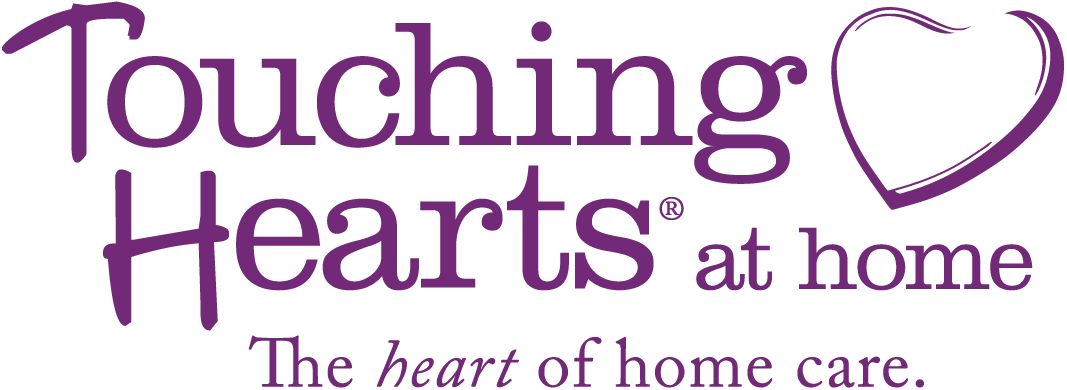At CareAcademy, our team members are passionate about making a difference in the lives of caregivers and […]
In the midst of incomprehensible mortality figures during the COVID-19 pandemic, vaccinations represent a light at the end of a long, dark tunnel for many.
The home care agencies we talk with are eager to protect their staff and clients by getting as many caregivers vaccinated as quickly as possible. This leaves many agency leaders wondering, are employer-mandated vaccinations the most effective path forward? Is that legal? What are the ramifications to consider?
Each organization should contact their legal counsel to review their individual unique situations. However, get started below with general guidance from legal experts on the common questions home care agencies are asking.
DISCLAIMER: By continuing you acknowledge that CareAcademy is not providing any legal advice on this site. Please see our full disclaimer in the footnote below.
Table of Contents
- Can I require my staff to get vaccinated?
- Should employers be concerned about HIPAA violations?
- Can I disclose caregiver vaccination status to clients?
- Exceptions to Federal Vaccine Mandate Allowances
- Can I terminate employees who refused to get vaccinated?
- What are the pros to requiring vaccination?
- What are the cons to requiring vaccination?
- Final thoughts
- Footnote Disclaimer
Key Sources/ Experts
Can I require my staff to get vaccinated?
The Equal Employment Opportunity Commission (EEOC), which is responsible for enforcing federal laws that make it illegal to discriminate against a job applicant or an employee, has issued guidance for employers within its purview about mandatory vaccinations.
The simple answer is, in most cases, in terms of federal law, home care agencies may legally require staff to receive the COVID-19 vaccine, with several notable exceptions explored in the section below.
Bonus: Is your small business subject to EEOC oversight?
While EEOC guidance is clear that employer-mandated vaccinations are allowable under federal law, some state governments have proposed additional legislation that undermines this federal guidance. These laws, thus far proposed in several state legislatures “erode an employer’s ability to mandate the vaccines,” according to Seyfarth Shaw attorney Karla Grossenbacher. At the time of this writing, legislation has been introduced in New York, South Carolina, Washington,and Minnesota.
Home care agencies should seek legal counsel with direct ties to their state to fully explore rapidly evolving state-specific legislation regarding employer-mandated vaccinations.
Should employers be concerned about HIPAA violations?
While most businesses are able to make vaccinations for staff mandatory under federal law, home care agencies should remain aware of privacy considerations under HIPAA.
The Health Insurance Portability and Accountability Act of 1996 (HIPAA) exists to protect patient information from being disclosed without patient consent. Corporate legal experts from Alston & Bird suggest that how a caregiver receives their vaccination has implications for the applicability of HIPAA protections: “Whether HIPAA applies to vaccine-related information will depend on, among other things, who is administering the COVID-19 vaccine and whether the vaccine is administered in connection with a health plan. Not all health care providers are covered by HIPAA. Some employers may decide to offer the COVID-19 vaccine as a work safety public health measure, while others may offer the vaccine as part of a benefit under a HIPAA covered health plan.”
Healthcare employers who choose to require proof that employees have received a COVID-19 vaccine from non-employer run clinics should be particularly mindful of HIPAA considerations, according to legal expert Abbye Alexander, JD. Alexander explains “Employers may ask their employees whether they have received the vaccine, but they may only seek information from the employee’s medical provider with written authorization from the employee.”
To address this HIPAA privacy concern, the Centers for Disease control warns that “If an employer requires employees to provide proof that they have received a COVID-19 vaccination from a pharmacy or their own healthcare provider, the employer cannot mandate that the employee provide any medical information as part of the proof.”
Can I disclose caregiver vaccination status to clients?
This is of particular concern for home care agencies, as your clients may be understandably invested in knowing the vaccination status of in-home caregivers. Some factors (including how the vaccine was administered) impact HIPAA coverage for employers collecting vaccination records from employees. However, once an employee has been vaccinated, immunization records constitute privileged patient information under HIPAA, according to Abbye Alexander, JD, of Kaufman Dolowich & Voluck. As such, sharing that information with a 3rd party (in this case your client) would likely constitute a HIPAA violation.
Home care agencies may be able to use explicit written authorization from employees in order to provide that information to the client. However, they should work with legal counsel to assess what options for informed disclosure of caregiver vaccination status may apply to their unique situation.
Exceptions to Federal Vaccine Mandate Allowances:
The EEOC says you may require vaccinations of any kind, subject to exceptions where legal nuances protect employees. The EEOC has identified two notable exceptions to mandatory vaccinations in line with legal requirements of the Americans with Disabilities Act (ADA), Title VII of the Civil Rights Act of 1964, and the Genetic Information Nondiscrimination Act (GINA).
These exceptions include physical disability, pursuant to the Americans with Disabilities Act (ADA), and sincere religious objections, pursuant to Title VII of the Civil Rights Act of 1964.
Inability to be vaccinated due to a physical disability:
The EEOC has issued guidance on what constitutes a physical disability-based vaccine objection, as well as how employers should move forward. According to the law firm Spilman Thomas & Battle, the ADA bars employers from requiring “medical examinations that seek information regarding an employee’s physical or mental conditions. However, an employee's vaccination status is not included in this prohibition.”
Given this ADA allowance, how should home care agencies proceed? Spilman Thomas & Battle explains that employers should first assess whether the employee poses a direct threat to the health and safety of other employees or clients. EEOC guidance explains that situations that constitute a direct threat “would include a determination that an unvaccinated individual will expose others to the virus at the worksite.”
Once this determination has been made, Spilman Thomas & Battle explain that employers are required to provide “reasonable accommodations unless there is no way to provide a reasonable accommodation absent undue hardship.” For healthcare providers this may look like mandatory mask use or transferring the employee to another position. While employers can bar employees from coming into work if “a threat cannot be neutralized,” seek further legal guidance before any action is taken to terminate an employee.
Inability to be vaccinated due to a sincere religious objection
The other notable exception to mandated vaccination programs provided for in recent EEOC guidance reflects provisions in Title VII of the Civil Rights Act of 1964, which prohibits employers from discriminating against employees based on religion. When an employee discloses a religious opposition to receiving a vaccine, Title VII requires that employers “provide a reasonable accommodation unless it would pose an undue hardship.”
Corporate legal experts Spilman Thomas & Battle explain that “reasonable accommodations” should be made on a case-by-case basis, particularly when an employee has patient contact. Spilman Thomas & Battle further describes “undue hardship” as whenever the accommodation for an employee’s religious objection results in “more than a de minimis cost” to the employer. Home care organizations should seek legal counsel to ensure that they have met Title VII requirements for reasonable accommodations for religious objection.
Can I terminate employees who refused to get vaccinated?
Research by the Society for Human Resource Management (SHRM), shows that employers should be prepared to confront hesitancy from employees. SHRM’s recent research suggests that while 60% of U.S. workers report they “will probably or definitely get the vaccine once it becomes available to them,” 28% of respondents said they are “willing to lose their jobs if their employer requires the COVID-19 vaccine.”
According to EEOC guidance, if an employee cannot be vaccinated due to a disability or religious belief (see above), “and there is no reasonable accommodation possible, then it would be lawful for the employer to exclude the employee from the workplace.” Employers would need to assess other legal ramifications of pursuing termination, ensuring that other protections or rights have not been violated.
Despite this allowance, Thomson Reuters legal experts caution against this approach, explaining that “employers should not be too quick to terminate employment. Working with employees to address concerns and to ensure legal compliance is a better approach.”
What are the pros to requiring vaccination?
Early evidence shows that employer-mandated vaccination programs do increase vaccination rates, keeping caregivers and clients safer. Long-term care facilities like Juniper Village have been on the forefront of vaccine mandates. While the program has been controversial, it has been effective in achieving its stated goal. The New York Times reports that thanks to its mandated vaccination program, as of February. 25, 2021 97.7% of Juniper residents had received two vaccine doses, and so had 96% of its staff members.
Further, legal experts at Seyfarth Law warn that failing to implement vaccination programs entirely may leave employers open to tort or workers’ compensation claims. This risk increases for home care agencies and other healthcare providers, where employees may have a stronger case to argue employers without vaccination programs have failed to provide safe and healthy work environments required by OSHA’s general duty clause at section 5(a)(1).
What are the cons to requiring vaccination?
While national confidence in vaccines is rising, many home care workers remain more hesitant, and may opt to self-terminate, which represents a significant risk for agencies considering the workforce shortage the home care field currently faces. Juniper Village, a long-term care facility which currently boasts a 96% vaccination rate for staff members saw turnover increase: “We felt it was the best way to protect people, not just our residents but our team members and their families,” Lynne Katzmann, Juniper’s chief executive, told the New York Times. Katzmann explained “Of the company’s nearly 1,300 employees, ‘about 30 individuals have self-terminated’ because of the vaccination requirement.”
Further, SHRM legal expert Lisa Nagele-Piazza warns that employers must also be cautious about opening themselves up to legal risk when collecting medical information from their employees in requiring proof of vaccination. The Centers for Disease Control explains that: "If an employer requires employees to provide proof that they have received a COVID-19 vaccination from a pharmacy or their own healthcare provider, the employer cannot mandate that the employee provide any medical information as part of the proof."
Final thoughts
Regardless of how your home care agency chooses to manage vaccinations for staff, business leaders should seek legal counsel to understand all federal, state, and local implications for their vaccination policies.
Even more important than the decision your agency makes is how you communicate with your staff about why you made that decision. Ensure your staff has access to relevant, reliable information about COVID-19 vaccines. Our free COVID-19 Vaccine Class is one resource among many that can be used as part of that communications plan.
Footnote Disclaimer:
No Legal Advice Intended
The contents of this website and web page are intended to convey general information only and not to provide legal advice or opinions. The contents of this website, and the posting and viewing of the information on this website, should not be construed as, and should not be relied upon for, legal advice in any particular circumstance or fact situation. The information presented on this website may not reflect the most current legal developments. No action should be taken in reliance on the information contained on this website and we disclaim all liability in respect to actions taken or not taken based on any or all of the contents of this site to the fullest extent permitted by law. An attorney should be contacted for advice on specific legal issues.
Key Sources/ Experts:
- Main EEOC guidance page
- CDC vaccination guidance
- NYT feature
- Bloomberg Law feature
- Spilman Thomas & Battle
- Published article on JD supra quote
- Lisa Nagele-Piazza, J.D., SHRM-SCP
- MacElree & Harvey
- Abbye Alexander, JD (partner with Kaufman Dolowich Voluck in Orlando)
Learn strategies to engage your direct care workforce on vaccine skepticism and how it is keeping critical workers from helping the most vulnerable population.






